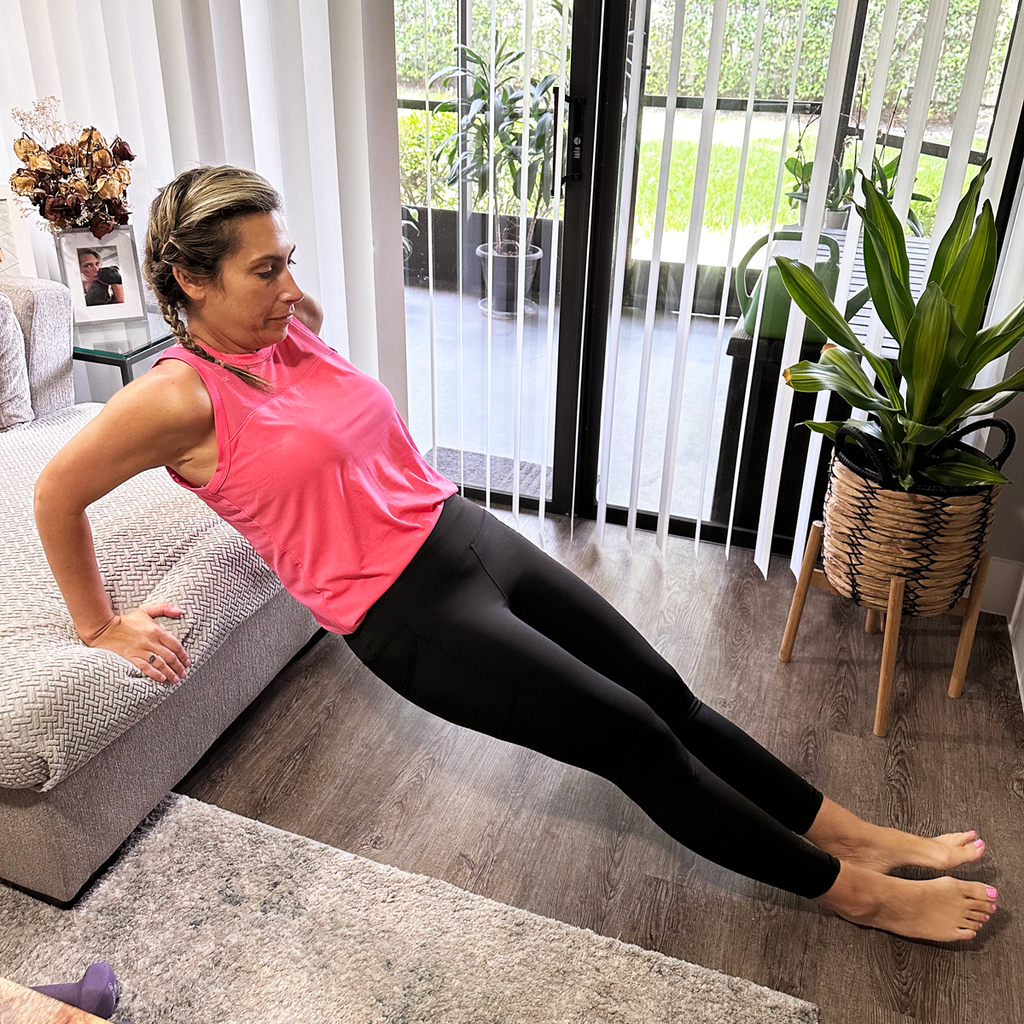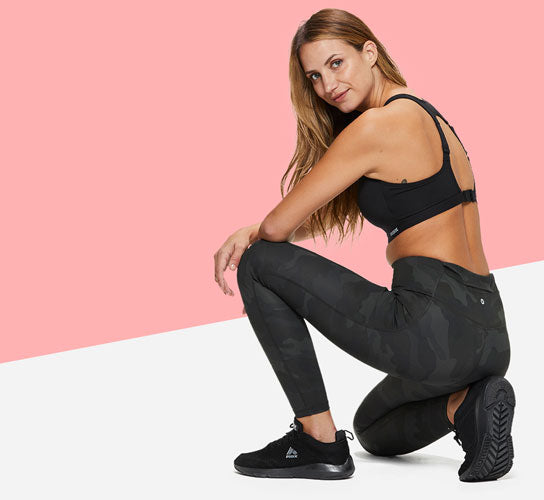
By Ali Kessler, Contributing Blogger
Weightlifting and strength training are beneficial at any age, but there are specific benefits for older women to prevent age-related ailments.
If you are a woman over 30 years old, I am sure it has been instilled that cardio and burning fat are the best way to stay fit, especially as we age. While that holds some truth, there is more to retaining a healthy lifestyle. Did you know you lose muscle as you age? Sadly, it's true. Starting at around age 30, men and women begin to lose muscle mass at about 10% each decade until age 50. The loss then accelerates to 15%. By the time you're 80, decreased muscle mass can become incredibly pronounced, making falls and bone break much easier.
Most men would say weightlifting if asked what their workout routine included. For some reason, it has gotten to be a male-dominant regimen. We get that women don't all want to look like pro wrestlers, but weightlifting and strength training have many important benefits that will improve your quality of life. You don't need arms like the Rock, but maintaining muscle tone will help minimize future ailments, especially for those alive in the 80s. While many fitness programs marketed to women emphasize the importance of cardio for weight loss, resistance, and strength training (aka weightlifting) is actually more beneficial for overall health.
What Exactly is Weightlifting and Strength Training?
Understanding what weightlifting really means is key before you think you have to spend countless hours at the gym lifting barbells and weights. In fact, let's think of weightlifting more as weight training, strength training, or resistance training because you don't actually need to lift weights to see results.
Weightlifting is one type of strength training that uses machines or free weights, but other types include using medicine balls, resistance bands, or doing body weight bearing exercises like push-ups, squats, Pilates, or yoga. Resistance training requires our muscles to contract to lift a heavy object against the pull of gravity, which builds muscle, strength, and endurance. The result is lean and toned muscles that will keep your body fit by improving bone density and protecting muscle mass to stay healthy well into your golden years.
Health Benefits of Weightlifting & Strength Training For Women
Along with cardio, strength training is essential to long-term wellness, especially for women over 30. Prepare your body for your future self and minimize health risks that could have been prevented. Integrating resistance training into your workout routine can help combat physical age-related concerns to help maintain range of motion, strength, and balance.
Strength training can benefit older women by:
- Increasing bone density
- Increasing muscle mass
- Enabling better balance and functionality
- Improving body composition
- Improving quality of life
- Increases energy
- Better functional strength
- Improves heart health
- Lowers stress levels
- Improves back and joint pain:
Goals for Adding Strength Training to Your Lifestyle
The first step in integrating weight and strength training into your workout routine is committing to it and allowing your body to adjust. You may feel weak at first or even feel your muscles shake, but in time, you will feel stronger.
- Start slow. Incorporate 20-30 minutes of strength training at least three days/week. You don't need fancy equipment; you can start with planks, push ups, or squats. Low-impact workouts like yoga and Pilates are great ways to increase strength, flexibility, and mobility from head to toe. Consistency is key. Avoid the temptation to add too much weight too quickly. Even light weights of about 3 pounds can pack a punch. As your body adapts, you'll be able to add more weight.
- Focus on form. Movement quality is key to preventing injury and getting each movement's full benefits. Move slowly and focus on the form.
- Establish a routine. Whether before your morning coffee or after the kids are asleep, make time for strength training and working out—alternate cardio and weight/strength training days.
Ready to start lifting? Remember, you don't need a gym membership for an effective strength training workout. Start slow and listen to your body. Consistently strength training and stretching, even for short periods, can be tremendously helpful in delaying or preventing many age-related ailments. Slow and steady wins the race.
Here are a few easy-to-do exercises that you can do anywhere. You can use free weights or your body weight with certain exercises to provide resistance. Always start with a quick warm-up to get the blood flowing.
5 Easy-To-Do Strength Training Exercises You Can Do Anywhere
1. Bicep Curls (with or without Dumbbells)
- Sit or stand with a dumbbell (or soup can) in each hand in front of you, your elbows at your sides, and your palms facing up.
- Curl the dumbbells up toward your shoulders by bending your elbows but keeping them stationary at your sides.
- Reverse the curl to the starting position.
-
Do: 3–6 sets of 4–8 reps

2. Push-ups:
- Lie face down and place hands on the floor, slightly wider than shoulders. • Push up to lift shoulders, torso, and legs until arms are fully extended. Only your hands and toes should be touching the floor.
-
Slowly lower your body until your chest almost touches the floor, then repeat. • Do:3–6 sets of 6–12 reps

3. Plank-ups:
- Start in plank position, with elbows and toes on the floor, core engaged, and torso elevated.
- Raise yourself into a push-up position by extending one arm at a time, keeping your body straight.
- Lower onto your elbows one arm at a time.
-
Do: 3 sets of 5–10 reps

4. Tricep Dips:
- Start seated in a chair (or on a step, etc.)
- Grab the edge of the chair with hands on either side of hips.
- Lift up and out into a hovering position beyond the chair edge.
- Extend legs until mostly straight. Slowly lower yourself toward the floor until your elbows are roughly parallel with your shoulders.
-
Push down into your hands to raise back up until your arms are straight. • Do: 2 sets of 10–12 reps

5. Step-up:
- Go to the stairs in your home or, if you don't have a staircase, place a sturdy box in front of you.
- Step up onto the box or the first stair with your right foot, then your left. • Reverse, stepping back down with the right foot, then left. Repeat, switching the leg you start with each time.
-
Do: 3 sets of 15 reps (each side)

Pro tip: For added difficulty, raise your knee toward your chest when you take the second step onto the box or stairs.
Don't forget to stretch and drink plenty of water throughout the day!


